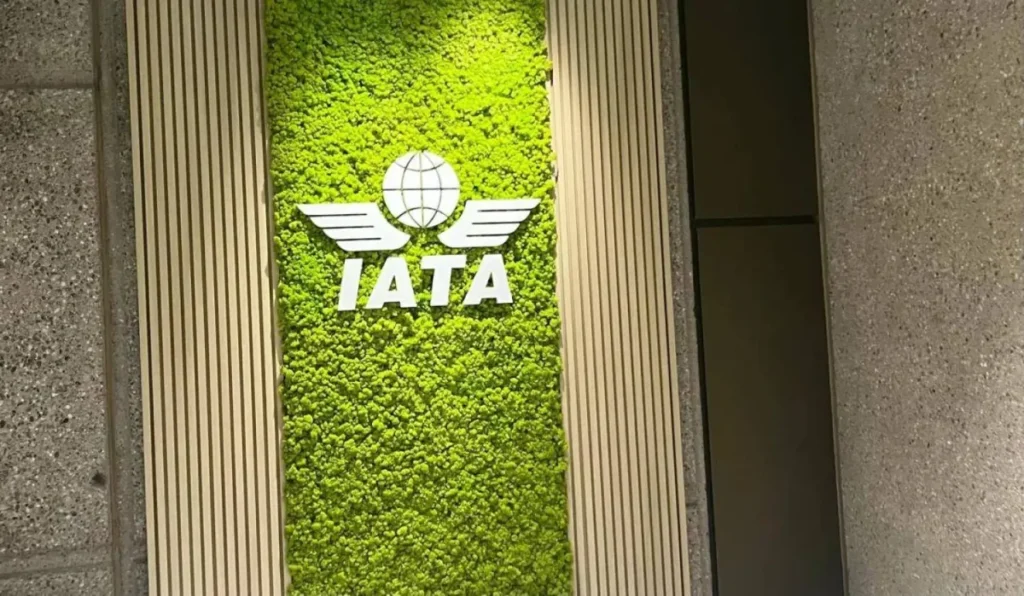The International Air Transport Association (IATA) said on Sunday that $1.3 billion in airline funds are blocked from repatriation by governments as of end of April 2025.
“This is a significant amount, although it is an improvement of 25% compared with the $1.7 billion reported for October 2024,” it said in a statement.
The announcement came during the 81st IATA Annual General Meeting (AGM) hosted in New Delhi by one of the largest airlines in India, IndiGo.
At the meeting, airline executives will discuss challenges the sector is facing at the environmental level, in addition to the increased operational costs, driven by factors such as rising fuel prices earlier this year and ongoing disruptions in global supply chains, which have delayed aircraft deliveries and constrained maintenance schedules.
In this regard, IATA urged governments to remove all barriers preventing airlines from the timely repatriation of their revenues from ticket sales and other activities in accordance with international agreements and treaty obligations.
“Ensuring the timely repatriation of revenues is vital for airlines to cover dollar-denominated expenses and maintain their operations,” said Willie Walsh, IATA’s Director General.
He said delays and denials violate bilateral agreements and increase exchange rate risks.
“Reliable access to revenues is critical for any business—particularly airlines which operate on very thin margins. Economies and jobs rely on international connectivity. Governments must realize that it is a challenge for airlines to maintain connectivity when revenue repatriation is denied or delayed,” Walsh added.
Sustainable Aviation Fuel (SAF)
IATA said SAF production is expected to grow to two million tons in 2025, accounting for just 0.7% of airline fuel use.
According to Walsh, while the production increase was encouraging, the relatively small amount will add $4.4 billion globally to aviation’s fuel bill.
“The pace of progress in ramping up production and gaining efficiencies to reduce costs must accelerate,” Walsh said in a statement.
IATA said SAF is now heading toward Europe, where the EU and UK mandates kicked in on 1 January 2025.
Unacceptably, it added, the cost of SAF to airlines has now doubled in Europe because of compliance fees that SAF producers or suppliers are charging.
For the expected one million tons of SAF that will be purchased to meet the European mandates in 2025, IATA said the expected cost at current market prices is $1.2 billion.
Also, compliance fees are estimated to add an additional $1.7 billion on top of market prices, an amount that could have abated an additional 3.5 million tons of carbon emissions.
“This highlights the problem with the implementation of mandates before there are sufficient market conditions and before safeguards are in place against unreasonable market practices that raise the cost of decarbonization,” said Walsh.
He noted that raising the cost of the energy transition that is already estimated to be a staggering $4.7 trillion should not be the aim or the result of decarbonization policies.
“Europe needs to realize that its approach is not working and find another way,” he said.
New Agreement
In light of the new challenges, IndiGo announced it has entered an agreement with Air France-KLM, Virgin Atlantic and Delta, to expand its long-haul services to North America, Europe and Britain, the airlines said on Sunday.
IndiGo has an extensive domestic network in India, the world’s third-largest air passenger market, and is expanding its international reach.
Once the airline partnership is complete, IndiGo will be able to sell flights under its own name on those operated by its partners out of India, and onward travel from Amsterdam and Manchester, UK, on selected flights to Europe and North America.
IndiGo will start flying to Amsterdam and Manchester from July.
Separately IndiGo said it would convert 30 out of 70 options for Airbus A350 jets into firm orders for new planes.
IndiGo is aiming to grow its fleet to 600 aircraft by 2030, from more than 400 currently, and has been leasing aircraft to tide it over aircraft delivery delays and expand internationally.
It recently said it will lease six Boeing 787 wide-body jets from Norse Atlantic Airways by early next year.
US carrier Delta has not flown to India since the pandemic. CEO Ed Bastian told media at an airline summit in New Delhi that Delta will restart direct services from the United States to India over the next couple of years.
“There’s not a more important market in aviation at the present time than in India,” Bastian said.
Delta is planning nonstop flights between Atlanta and Delhi, subject to government approval, a joint statement said.
Aviation Safety
At the annual meeting in New Delhi, aviation safety will also be in focus after a spate of air accidents in Kazakhstan, South Korea and North America over the past six months, and rising concerns about air traffic control systems in the United States.
IATA said in February that accidents and incidents related to conflict zones are a top concern for aviation safety requiring urgent global coordination.
In a related development, IATA said India has reached a major milestone in its aviation journey, rising to become the third-largest market for air travel globally.
In return, heightened tensions between India and Pakistan, have significantly impacted air travel in the region, forcing Indian airlines to take longer, detour routes.
Meanwhile, the aviation sector’s recent rebound in passenger numbers has been encouraging, with strong demand emerging across Europe and Asia.
However, US carriers have faced a more complicated picture, experiencing a downturn in travel demand.
The uncertainty over how the Trump Administration’s trade policies will evolve could hold back critical business decisions that drive economic activity, and with it the demand for air cargo and business travel.



